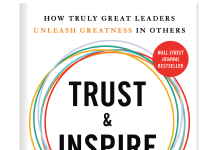Compliance training receives quite a bit of attention, as companies know the high costs of non-compliance, which vary from penalties to jail time. So whether it covers federal and state regulations (SOX, GLBA, HIPAA, etc.) or internal policies such as data security, fraud prevention, etc., companies need to implement efficient compliance training for employees. However, employees often find compliance training boring or even useless, especially if it is delivered in a traditional classroom way. And when employees are not motivated, training can be a waste of time and resources. At the same time, training coordinators and trainers look for ways to create and update training materials, and administer the training process quicker and easier.
Learning management systems (LMSs) can help meet these challenges. They offer diverse training content types (video, audio, graphics) and rich collaboration and gamification features that can make compliance training more entertaining for employees and automate creating and managing learning materials. Considering that approximately 80 percent of Fortune 500 companies use SharePoint, we have chosen an LMS based on SharePoint as an example and analyzed this platform’s benefits for compliance training. They include:
#1 Easy updating of training materials
Often, new compliance regulations and corporate policies emerge or existing ones are revised, so it’s important to reflect these changes in compliance training materials in a timely manner. A SharePoint LMS allows for the easy and fast authoring of training content right in SharePoint (document libraries, wikis, blogs, etc.) and Office 365 (Word, PowerPoint, etc.), and enables incorporation of training content from other sites (e.g., YouTube) through adding links. As a result, it takes hours, not days, to update training materials.
#2 Consistency of training content
Considering the importance of compliance training efficiency, it’s crucial to retain consistency of training content and ensure all employees use the same materials. A SharePoint LMS guarantees consistency due to providing centralized storage and versioning capability. With versioning, a SharePoint LMS allows users to track all the changes made to training materials and helps to restore a previous version in case of unwanted changes or deletion of e-learning content.
#3 Advanced security
A SharePoint LMS offers advanced security due to multifactor authentication and managing permission levels for users and user groups. For example, only a trainer can create, share, or modify training content. High security of compliance training materials is especially relevant when they contain references to a company’s real compliance breaches (e.g., a breach that led to an accounting fraud), which makes these materials sensitive information.
#4 High availability
Whether employees work at remote offices or are on a business trip, they should have 24/7/365 access to compliance training materials. Due to its mobile friendliness, a SharePoint LMS encourages microtraining, and employees can learn at their own pace at any time that suits them, including on the job or during breaks, instead of attending full-time courses.
#5 Full automation of training-related processes
A SharePoint LMS provides digitalizing training management, including automation of:
- Enrolling: It allows for setting up a workflow for automatic enrollment of employees to certain compliance training depending on their roles and duties. This ensures no employee will miss a compulsory training session.
- Scheduling events and notifications: A SharePoint LMS provides scheduling meetings, assessment tests, and other events, and generates automatic notifications triggered by these events or changes in the training materials (adding, modifying, deleting, etc.).
- Reporting: A SharePoint LMS automatically generates reports using various metrics such as employees’ attendance, task fulfillment, pass/fail grades, finished courses, etc.
- Certification: A SharePoint LMS can grant certifications to employees automatically after they finish training and set up a retention policy for certifications. Thus, when an employee’s certificate expires after a certain period, the system can assign him or her to refresher training.
- Compliance acknowledgement: A SharePoint LMS can be integrated with e-signature software, such as DocuSign, for compliance acknowledgement upon completing the training or its module. In case of violation, an e-signature can prove an employee read and understood compliance rules and policies and was obliged to abide by them.
#6 Rich social features
A SharePoint LMS encourages social learning. SharePoint collaboration and communication tools include group sites, blogs, chats, and discussion boards, where trainees can ask questions, share opinions and suggestions, etc. They also can leave their feedback, which is valuable for assessing the efficiency of compliance training and outlining potential improvements. All this makes employees active participants in the training process and increases their engagement and motivation, which is crucial for effective compliance training.
#7 Gamification
Considering compliance often consists of do’s and don’ts, it is not usually very exciting and easy to memorize for employees. A SharePoint LMS can make compliance training more inspiring by adding some game mechanics. For example, employees can play mini-games that simulate real-life scenarios concerning compliance issues; for example, personal health information breaches in health care. Upon defining instances of the breaches correctly, employees are awarded achievement points. A SharePoint LMS enables making leaderboards based on gained points, which helps to increase employees’ motivation by adding competition to compliance training. What’s more, this approach makes the learning content easier to absorb and results in higher knowledge retention.
Productive and Relevant Compliance Training
To be effective, facilitate knowledge retention, and avoid risks related to non-compliance, compliance training should always be relevant and efficiently administered. But it should not only deliver the learning materials to employees; it also must grab and keep their attention during the learning process. Learning management software can be the answer to all these requirements. A SharePoint LMS has all the necessary features for productive and relevant compliance training, including high availability and flexibility, advanced security, and reporting features. What is more, it can turn dry compliance training into an interesting experience due to the wide use of social and gamification features.
Sergey Golubenko is a team lead and solution architect at ScienceSoft with 13-plus years in software development, including more than 7 years of working with Microsoft SharePoint. Golubenko’s portfolio of SharePoint projects features content and workflow management, search, collaboration, business connectivity services, etc. He believes team engagement is a must for project success and predicts the advance of SharePoint in the cloud.




